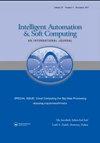开发针对冠状病毒(COVID-19)大流行的安全医疗保健视频咨询
IF 2
4区 计算机科学
Q2 Computer Science
引用次数: 1
摘要
在COVID-19大流行之前,许多卫生网络在实施远程医疗咨询方法方面变得越来越互动。为了减少贩运患者和减少卫生中心的病毒暴露,在大流行开始时咨询了几位全科医生、医生和视频中的人员。视频和智能手机咨询将使隔离良好和高风险的医生保持他们的病人护理安全。视频预约包括糖尿病、肥胖、高血压、中风、精神健康、化疗和慢性疼痛。许多急症,包括眼科的紧急分诊,也可用于在线咨询和分诊。2019冠状病毒病大流行表明,健康医疗保健的医疗保健选择以及将视频咨询等医疗保健选择增加到最低限度的可能性迅速增加。现在,COVID-19病毒传播的目标是通过交流见解和模拟卫生咨询,以及节省COVID-19大流行带来的成本和卫生保健做法,扩大视频卫生咨询的使用。本文主要研究视频咨询隐私问题。本文进一步阐述了视频咨询及其实施的优点和缺点。本文提出了一种最新的视频加密方法——高效视频编码选择性加密(HEVC SE)。我们的视频咨询方案已经改进,以确保视频流的低计算开销,具有相同的比特率,并确保与视频格式的兼容性。在低复杂度计算机RC5上,通过旁路二进制算术编码,利用上下文自适应二进制算术编码(CABAC)方法对HEVC意义下二进制字符串二值化的子集进行了加密。该binstring序列由非零微分变换余弦(DCT)系数位、MVD符号位、余数绝对DCT后缀和绝对MVD后缀组成。本文还研究了RC5及其在HEVC CABAC SE中提出的操作模式的使用效率评估。本研究选择RC5的最佳运行模式用于医疗保健视频会诊应用。通过直方图分析、相关系数测试和密钥敏感性测试等安全分析,防止暴力破解和统计攻击。本文章由计算机程序翻译,如有差异,请以英文原文为准。
Developing Secure Healthcare Video Consultations for Corona Virus (COVID-19) Pandemic
Many health networks became increasingly interactive in implementing a consulting approach to telemedicine before the COVID-19 pandemic. To mitigate patient trafficking and reduce the virus exposure in health centers, several GPs, physicians and people in the video were consulted during the pandemic at the start. Video and smartphone consultations will allow well-insulated and high-risk medical practitioners to maintain their patient care security. Video appointments include diabetes, obesity, hypertension, stroke, mental health, chemotherapy and chronic pain. Many urgent diseases, including an emergency triage for the eye, may also be used for online consultations and triages. The COVID-19 pandemic shows that healthcare option for healthy healthcare and the potential to increase to a minimum, such as video consultations, have grown quickly. The dissemination of COVID-19 viruses now aims at extending the use of Video-Health Consultations by exchanging insights and simulations of health consultations and saving costs and healthcare practices as a consequence of the COVID-19 pandemic. Our paper focuses on video consulting privacy. This essay further presents the advantages and inconveniences of video consultation and its implementation. This paper suggests the most recent video encryption method known as high efficiency video coding selective encryption (HEVC SE). Our video consultation schema has been improved to secure video streaming on a low calculation overhead, with the same bit rate and to ensure compatibility with the video format. The contribution is made with RC5, a low complexity computer, to encrypt subsets of bin-strings binarized in the HEVC sense using the context adaptive binary arithmetic coding (CABAC) method through the bypass binary arithmetic coding. This sequence of binstrings consists of a non-zero differential transforming cosine (DCT) coefficient bit, MVD sign bits, remainder absolute DCT suffixes and absolute MVD suffixes. This paper also examines the efficiency assessment of the use of the RC5 with its modes of operations in the HEVC CABAC SE proposed. This study chooses the best operating mode for RC5 to be used for the healthcare video consultation application. Security analysis, such as histogram analysis, correlation coefficient testing and key sensitivity testing, is presented to protect against brute force and statistical attacks for the proposed schema.
求助全文
通过发布文献求助,成功后即可免费获取论文全文。
去求助
来源期刊

Intelligent Automation and Soft Computing
工程技术-计算机:人工智能
CiteScore
3.50
自引率
10.00%
发文量
429
审稿时长
10.8 months
期刊介绍:
An International Journal seeks to provide a common forum for the dissemination of accurate results about the world of intelligent automation, artificial intelligence, computer science, control, intelligent data science, modeling and systems engineering. It is intended that the articles published in the journal will encompass both the short and the long term effects of soft computing and other related fields such as robotics, control, computer, vision, speech recognition, pattern recognition, data mining, big data, data analytics, machine intelligence, cyber security and deep learning. It further hopes it will address the existing and emerging relationships between automation, systems engineering, system of systems engineering and soft computing. The journal will publish original and survey papers on artificial intelligence, intelligent automation and computer engineering with an emphasis on current and potential applications of soft computing. It will have a broad interest in all engineering disciplines, computer science, and related technological fields such as medicine, biology operations research, technology management, agriculture and information technology.
 求助内容:
求助内容: 应助结果提醒方式:
应助结果提醒方式:


